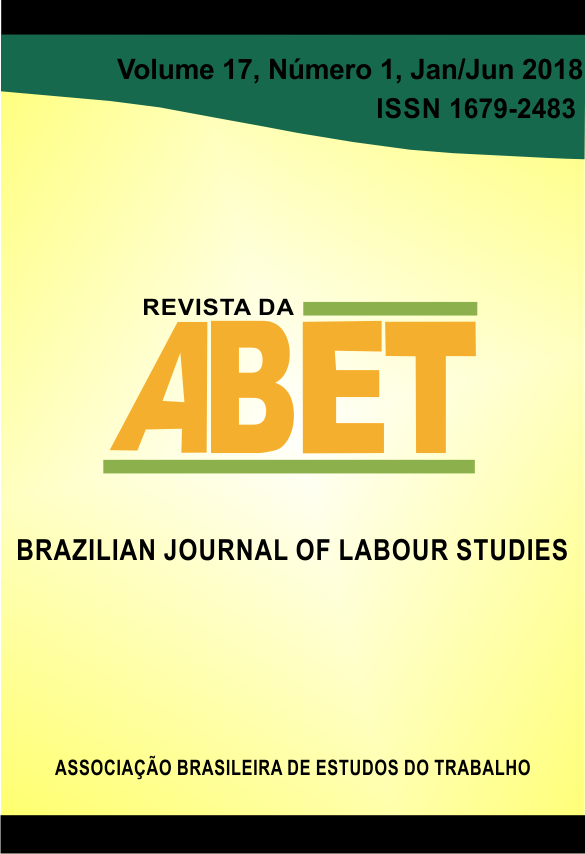UNION ACTION IN ARGENTINA AND BRAZIL: AN ANALYSIS FROM THE CGT AND CUT CASE STUDIES IN THE DAWN OF THE 21ST CENTURY
DOI:
https://doi.org/10.22478/ufpb.1676-4439.2018v17n1.41173Abstract
This article aims to identify in what measures the actions taken by the main trade union confederations of Brazil and Argentina (CUT and CGT) altered the labor agenda of their governments between 2003 and 2014 and to investigate the meaning of their practices in terms of a process of trade union recovery in these countries. The first section analyses the changes in the market and in labor relations, while its second section maps the confederations' actions before the major clashes around employment relationship aspects. The conclusion argues that CUT and CGT have prioritized claims in the economic field, without achieving greater changes in the elements that deal with working conditions, their contracting modalities and working hours. They did so by giving preference to an institutional role and compromising the capacity of the trade union movement to reverse the process of flexibilization of labor relations, which undermine the thesis of trade union recovery in these countries.
Downloads
Metrics
Downloads
Published
How to Cite
Issue
Section
License
Política de Acesso Livre
Esta revista oferece acesso livre imediato ao seu conteúdo, seguindo o princípio de que disponibilizar gratuitamente o conhecimento científico ao público proporciona maior democratização mundial do conhecimento.
Atribuição dos artigos é não comercial (sem derivações 4.0, isto é, Creative Commons) e o acesso é livre e gratuito para download e leitura.
Não há taxa para submissão, avaliação e publicação de artigos.
Copyright
1) Os artigos são de responsabilidade exclusiva dos autores. É permitida sua reprodução, total ou parcial desde que seja citada a fonte.
2) Os trabalhos enviados para publicação devem ser inéditos, não sendo permitida sua apresentação simultânea em outro periódico nacional.
3) Os artigos são submetidos a pareceristas "ad hoc", após prévia avaliação da Comissão Editorial, os quais podem aceitar, recusar ou reapresentar o original ao autor com sugestões para alterações. Os nomes dos pareceristas permanecem em sigilo, bem como os nomes dos autores.
Os Autores que publicam nesta revista concordam com os seguintes termos:
Autores mantêm os direitos autorais e concedem à revista o direito de primeira publicação, com o trabalho simultaneamente licenciado sob a Creative Commons Attribution License, permitindo o compartilhamento do trabalho com reconhecimento da autoria do trabalho e publicação inicial nesta revista.
Autores têm autorização para assumir contratos adicionais separadamente, para distribuição não-exclusiva da versão do trabalho publicada nesta revista (ex.: publicar em repositório institucional ou como capítulo de livro), com reconhecimento de autoria e publicação inicial nesta revista.
Autores têm permissão e são estimulados a publicar e distribuir seu trabalho online (ex.: em repositórios institucionais ou na sua página pessoal), já que isso pode gerar alterações produtivas, bem como aumentar o impacto e a citação do trabalho publicado.
Patrocinador
A publicação recebe financiamento da Associação Brasileira de Estudos do Trabalho.










